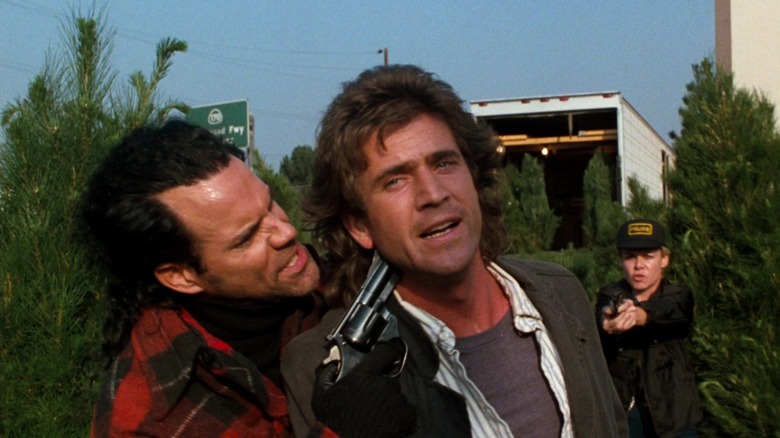For most of his career, Bruce Willis was known as an action hero, often playing cops, soldiers, or other leather-tough gentlemen of fortune. When Sylvester Stallone’s nostalgia-based actioner “The Expendables” was released in 2010, Willis was one of the most prevalent credits, listed right next to Stallone and Arnold Schwarzenegger’s names. He was, in the eyes of the public, one of America’s top leading men when it came to guns and mayhem. Willis played action heroes so well, though, because of a smirking, self-deprecating quality that often undercut his capacity for violence. Willis always lent a twinkling sense of humor to his gun-toting roles, making his genre pictures unique.
It’s worth remembering that before “Die Hard,” Willis was best known for the 1985 TV series “Moonlighting,” a romantic caper show he starred in with Cybill Shepherd. He also appeared in the critically panned but widely successful comedy “Blind Date” wherein he played an everyday schlub who had to wrangle the drunken wildness of Kim Basinger. He was known as a comedian and a romantic lead, and was certainly not prime “action hero” material. In the mid-1980s, action heroes were over-muscled super-soldiers like John Rambo or John Matrix, and Willis was comparatively wimpy, making him an odd choice to play John McClane in John McTiernan’s hostage/heist movie “Die Hard” in 1988.
However, Willis played McClane well, proving that he could be a wisecracking comedy character while also murdering scads of bad buys. After that, his range as an actor opened up.
Back in 2007, Willis spoke with Entertainment Weekly about his career, revealing that about the same time he was handed a script to “Die Hard,” he also was considering taking the role of Sergeant Marting Riggs, the character eventually played by Mel Gibson in Richard Donner’s 1987 cop film “Lethal Weapon.” Had he accepted the part, Willis’ action career may have taken off a year earlier.
Bruce Willis considered playing Riggs in Lethal Weapon
Willis pointed out to the EW interviewer, Chris Nashawaty, that he was at the beginning of his acting career when he was offered films like “Lethal Weapon” and “Die Hard.” “Moonlighting” was a hit, but in the mid-1980s, there wasn’t a lot of direct cross-pollination between television and cinema. Also, Willis felt he wasn’t a very good actor yet, still honing his craft. He recalled that his New Jersey origins and lack of showbiz experience leaked into his performance of John McClane, as the actor used his own flippant attitudes to inform his on-screen New York cop. In his own words:
“I was doing TV, I’d only been in L.A. for a couple of years, I was still really learning how to act, so most of what went into making John McClane from a character standpoint was the South Jersey Bruce Willis — that attitude and disrespect for authority, that gallows sense of humor, the reluctant hero. What I always say about John McClane is if he had the choice of someone else stepping up and doing what he had to do, he would let them do it.”
A similar attitude might have been needed to play Riggs in Donner’s film, which Willis recalled reading the script for. When “Lethal Weapon” begins, Riggs is suicidal following the recent death of his wife, leading him to behave recklessly on the job and distress his partner Murtaugh (Danny Glover). Willis could have played an unstable L.A. cop perfectly well, but his girlfriend at the time, likely Demi Moore (whom be married in 1987), talked him out of it. As he recalled:
“I remember right around that time, the script for ‘Lethal Weapon’ came across my path and my girlfriend at the time read it and said it was way too violent. Thank God I didn’t do that one!”
Gibson ended up taking the role instead, with “Lethal Weapon” becoming a huge hit. If Willis had any regrets about rejecting Donner’s film, they were likely diffused by the success of “Die Hard” the following year. Both spawned multiple sequels. Each actor got their slice of cake.
This post was originally published on here








